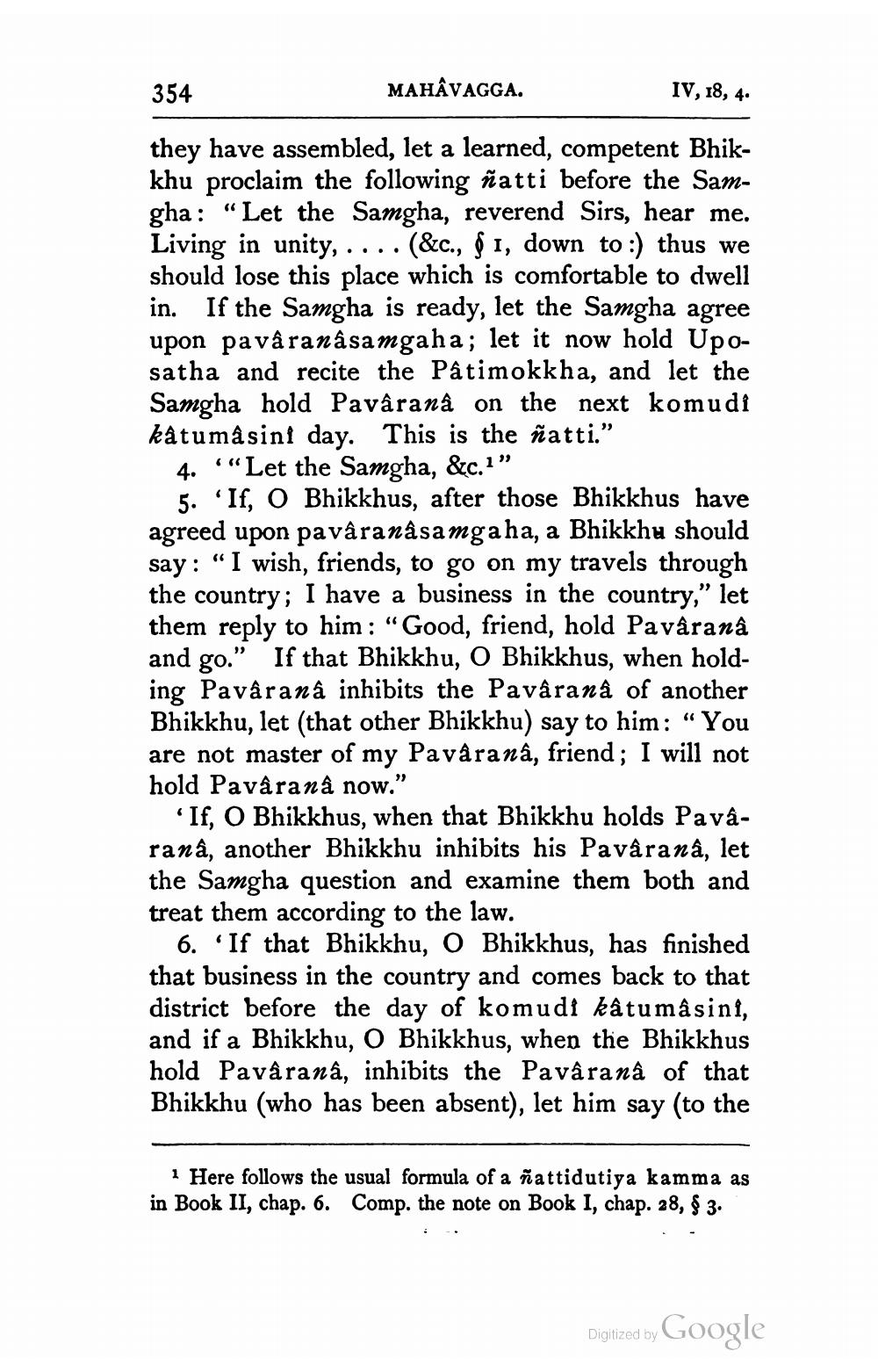________________
MAHAVAGGA.
354
they have assembled, let a learned, competent Bhikkhu proclaim the following ñatti before the Samgha: "Let the Samgha, reverend Sirs, hear me. Living in unity, . . (&c., § 1, down to :) thus we should lose this place which is comfortable to dwell in. If the Samgha is ready, let the Samgha agree upon pavâranâsamgaha; let it now hold Uposatha and recite the Pâtimokkha, and let the Samgha hold Pavâranâ on the next komudi kâtumâsini day. This is the natti."
IV, 18, 4.
4. "Let the Samgha, &c.1"
5. If, O Bhikkhus, after those Bhikkhus have agreed upon pavâranâsamgaha, a Bhikkhu should say: "I wish, friends, to go on my travels through the country; I have a business in the country," let them reply to him: "Good, friend, hold Pavâranâ and go." If that Bhikkhu, O Bhikkhus, when holding Pavâranâ inhibits the Pavâranâ of another Bhikkhu, let (that other Bhikkhu) say to him: "You are not master of my Paváranâ, friend; I will not hold Pavâranâ now."
'If, O Bhikkhus, when that Bhikkhu holds Pavâranâ, another Bhikkhu inhibits his Pavâranâ, let the Samgha question and examine them both and treat them according to the law.
6. If that Bhikkhu, O Bhikkhus, has finished that business in the country and comes back to that district before the day of komudi kâtumâsinf, and if a Bhikkhu, O Bhikkhus, when the Bhikkhus hold Pavâranâ, inhibits the Pavâranâ of that Bhikkhu (who has been absent), let him say (to the
1 Here follows the usual formula of a ñattidutiya kamma as in Book II, chap. 6. Comp. the note on Book I, chap. 28, § 3.
Digitized by
Google




